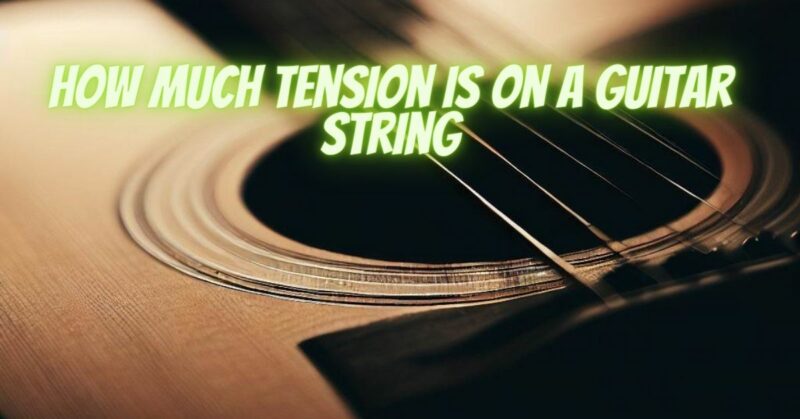The tension of guitar strings is a fundamental aspect that shapes a guitar’s playability, sound, and overall performance. Achieving the ideal tension for your playing style and musical preferences requires a balance between string gauge, tuning, and the instrument’s construction. This article delves into the significance of measuring and understanding string tension, exploring how it affects your guitar and offering insights into finding the optimal tension for your musical journey.
Understanding String Tension:
String tension refers to the force exerted on a guitar’s neck and body by the tightened strings. It is determined by factors such as the gauge of the strings, the tuning used, and the scale length of the guitar. Lighter gauge strings at standard tuning will produce lower tension, while heavier gauge strings tuned to lower pitches will result in higher tension.
Impact on Playability and Sound:
Playability: The tension of guitar strings influences the effort required to press down on the frets. Higher tension can make bending strings and performing techniques like vibrato more challenging, while lower tension may result in fret buzz or lack of sustain.
Sound Quality: String tension affects the tone and volume of the guitar. Higher tension can enhance sustain, brightness, and overall projection, making it suitable for genres that require clarity and power. Lower tension might result in a mellower, warmer tone.
Finding the Right Balance:
Guitar Type and Scale Length: Different guitar types (acoustic, electric, classical) and scale lengths (distance between the nut and bridge) contribute to the ideal tension for a specific instrument. Classical guitars, for instance, often use lower tension nylon strings due to their longer scale length.
String Gauge and Tuning: Experiment with different string gauges and tunings to find the tension that complements your playing style. Lighter gauges are more forgiving on the fingers but might sacrifice volume, while heavier gauges offer more volume and projection.
Personal Playing Style: Your playing style also influences your preference for string tension. Lighter tension may be favored by fingerstyle players, while heavier tension suits aggressive strumming or bending-heavy styles.
Measuring String Tension:
- String Tension Calculator: Online string tension calculators help you estimate the tension of your strings based on gauge, tuning, and scale length.
- Tension Gauge Tool: Tension gauges specifically designed for guitars allow you to measure the tension directly at the strings.
String tension is a delicate equilibrium that affects the way you interact with your guitar and the sonic character it produces. Experimentation, combined with understanding the relationship between string gauge, tuning, and scale length, empowers you to find the optimal tension that resonates with your musical expression. By striking the right balance, you enhance both your playing experience and the unique voice of your instrument.


